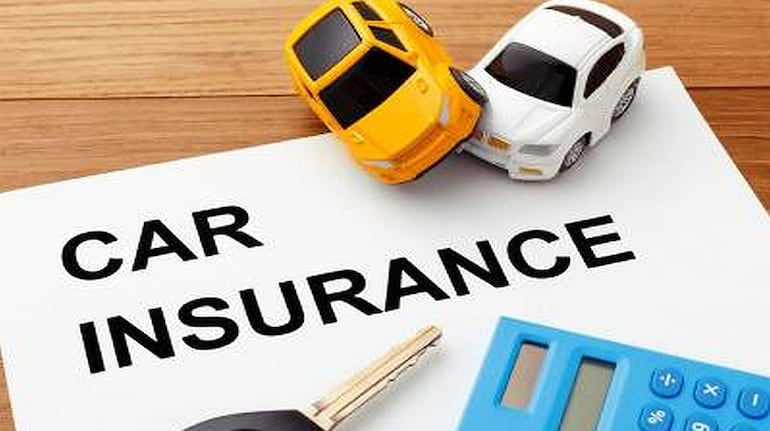Even if you don’t own a car, it’s still necessary to understand the fundamentals of auto insurance and how it functions. You may have heard of several types of auto insurance but may not have fully understood them. You will discover all the information you require in this article.

The five primary types of auto insurance that every driver should be aware of are listed below. You may be confident that you are adequately covered when you purchase one of these insurance policies. Continue reading this article with me.
Damage to Triparty Property Coverage
This kind covers any property damage done to a third party as a result of an accident that you or your vehicle caused. Another situation is when you crash into another driver’s car or let crash debris into their vehicle. Their third-party property damage insurance would apply in this situation.
Most drivers choose to carry $1,000 in property damage insurance per accident and 100/300/50 liability limits. If you have significant assets that could be at danger from a lawsuit, you can increase these limits.
It is significant to note that state laws on the amount of insurance necessary for each group vary considerably. Contact your neighborhood DMV office to learn what your state requires. They will also give you information on other insurance categories, like uninsured motorist protection, that you ought to think about getting.
Coverage for Physical Damage
This protects the harm you do to someone else’s car in an accident. Your car will cost money to fix or replace if it is damaged in a collision. You will be shielded from having to pay for these costs out of pocket by purchasing physical damage coverage.
Although it could seem pricey, keep in mind that years of savings could be lost in an accident! (It occurs more frequently than you might imagine.) Additionally, ask your insurance agent if there are any reductions based on your safe driving record. By merely avoiding accidents, you could be able to save hundreds of dollars per year.
You can find out if you’re eligible for a discount from your agent. Today, several safety elements that were once optional add-ons are available as standard equipment. Ensure that each is covered by your coverage.
For instance, anti-lock brakes, which were formerly a $200 option, are now a commonplace feature on many vehicles. Make sure your policy takes these into account. Obtain estimates from several businesses even if you don’t have anti-lock brakes to ascertain how much they’ll deduct.
Coverage of Collisions
If your car collides with another vehicle or an object, such a tree, you are covered by this insurance. The insurance will pay for car damage, passenger injuries, and associated property damage. If another driver strikes you and their car is deemed to be more at fault than yours, it may also cover any damage.
In the event of an accident involving an uninsured driver, collision will pay up to $1,000 in medical expenses for other persons. If you have comprehensive coverage, collision compensates for damages above and beyond what comprehensive covers. It may be against the law to drive without a collision in some states.
It’s optional in certain cases but advised in others. When compared to liability policy, collision coverage has higher premiums. For example, theft, vandalism, fire, flood, and earthquakes are not covered by collision insurance. Comprehensive coverage is the name for that type of insurance, but you don’t need collision and comprehensive coverage.
Substantial Coverage
This insurance normally covers your car and any occupants inside and will pay for damages resulting from any unforeseeable catastrophe. Damage brought on by calamities such as fires, floods, windstorms, falling objects, and animals is also covered under comprehensive coverage. If you are concerned about weather-related disasters and other potentially expensive dangers, comprehensive coverage is a wise option.
If you have a more recent vehicle with pricey extras, it will cost more than collision coverage but might be worthwhile. If the value of your car is declining because it is older, it might not be worth it. To find out what they consider a newer vehicle, you should ask your insurer.
If you install anti-theft devices like alarms and tracking systems, the majority of insurers will give you savings on comprehensive coverage. These gadgets dissuade car thieves from targeting easier-to-steal vehicles. These features may result in a reduction in your rate even though comprehensive coverage does not cover theft because they deter thieves from targeting your vehicle.
Remember that before your insurance pays any claims, most policies require you to pay a deductible.
Coverage for Garage Keeper’s Legal Liability
You must carry garage keeper’s legal liability insurance. This safeguards you in case someone is hurt at your house and decides to file a lawsuit against you. Additionally, it includes any harm they cause to your car or other property while they are on your property.
Most policies include garage keeper’s liability as basic coverage, which adds little to the monthly premium. Speak to an agent right away about including it into your coverage.
Finally, you might want to take a look at the following packages:
No-blame Coverage: Regardless of who was at blame for the accident, no-fault insurance coverage will cover any necessary repairs, replacements, or medical costs. No-fault insurance is mandated by law in some states.


